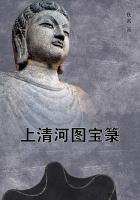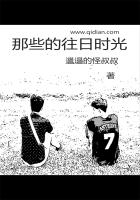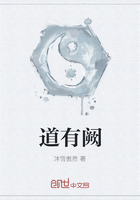`Ecod,' said Mr Browdie, laughing boisterously, `they dean't put too much intiv'em. Ye'll be nowt but skeen and boans if you stop here long eneaf. Ho ho! ho!'
`You are facetious, sir,' said Nicholas, scornfully.
`Na; I dean't know,' replied Mr Browdie, `but t'oother teacher, 'cod he wur a learn 'un, he wur.' The recollection of the last teacher's leanness seemed to afford Mr Browdie the most exquisite delight, for he laughed until he found it necessary to apply his coat-cuffs to his eyes.
`I don't know whether your perceptions are quite keen enough, Mr Browdie, to enable you to understand that your remarks are offensive,' said Nicholas in a towering passion, `but if they are, have the goodness to--'
`If you say another word, John,' shrieked Miss Price, stopping her admirer's mouth as he was about to interrupt, `only half a word, I'll never forgive you, or speak to you again.'
`Weel, my lass, I dean't care aboot 'un,' said the corn-factor, bestowing a hearty kiss on Miss Matilda; `let 'un gang on, let 'un gang on.'
It now became Miss Squeers's turn to intercede with Nicholas, which she did with many symptoms of alarm and horror; the effect of the double intercession was, that he and John Browdie shook hands across the table with much gravity; and such was the imposing nature of the ceremonial, that Miss Squeers was overcome and shed tears.
`What's the matter, Fanny?' said Miss Price.
`Nothing, 'Tilda,' replied Miss Squeers, sobbing.
`There never was any danger,' said Miss Price, `was there, Mr Nickleby?'
`None at all,' replied Nicholas. `Absurd.'
`That's right,' whispered Miss Price, `say something kind to her, and she'll soon come round. Here! Shall John and I go into the little kitchen, and come back presently?'
`Not on any account,' rejoined Nicholas, quite alarmed at the proposition.
`What on earth should you do that for?'
`Well,' said Miss Price, beckoning him aside, and speaking with some degree of contempt--`you are a one to keep company.'
`What do you mean?' said Nicholas; `I am not a one to keep company at all--here at all events. I can't make this out.'
`No, nor I neither," rejoined Miss Price; `but men are always fickle, and always were, and always will be; that I can make out, very easily.'
`Fickle!' cried Nicholas; `what do you suppose? You don't mean to say that you think--'
`Oh no, I think nothing at all,' retorted Miss Price, pettishly. `Look at her, dressed so beautiful and looking so well--really almost handsome. I am ashamed at you.'
`My dear girl, what have I got to do with her dressing beautifully or looking well?' inquired Nicholas.
`Come, don't call me a dear girl,' said Miss Price--smiling a little though, for she was pretty, and a coquette too in her small way, and Nicholas was good-looking, and she supposed him the property of somebody else, which were all reasons why she should be gratified to think she had made an impression on him,--`or Fanny will be saying it's my fault. Come; we're going to have a game at cards.' Pronouncing these last words aloud, she tripped away and rejoined the big Yorkshireman.
This was wholly unintelligible to Nicholas, who had no other distinct impression on his mind at the moment, than that Miss Squeers was an ordinary-looking girl, and her friend Miss Price a pretty one; but he had not time to enlighten himself by reflection, for the hearth being by this time swept up, and the candle snuffed, they sat down to play speculation.
`There are only four of us, 'Tilda,' said Miss Squeers, looking slily at Nicholas; `so we had better go partners, two against two.'
`What do you say, Mr Nickleby?' inquired Miss Price.
`With all the pleasure in life,' replied Nicholas. And so saying, quite unconscious of his heinous offence, he amalgamated into one common heap those portions of a Dotheboys Hall card of terms, which represented his own counters, and those allotted to Miss Price, respectively.
`Mr Browdie,' said Miss Squeers hysterically, `shall we make a bank against them?'
The Yorkshireman assented--apparently quite overwhelmed by the new usher's impudence--and Miss Squeers darted a spiteful look at her friend, and giggled convulsively.
The deal fell to Nicholas, and the hand prospered.
`We intend to win everything,' said he.
`'Tilda has won something she didn't expect, I think, haven't you, dear?' said Miss Squeers, maliciously.
`Only a dozen and eight, love,' replied Miss Price, affecting to take the question in a literal sense.
`How dull you are tonight!' sneered Miss Squeers.
`No, indeed,' replied Miss Price, `I am in excellent spirits. I was thinking you seemed out of sorts.'
`Me!' cried Miss Squeers, biting her lips, and trembling with very jealousy.
`Oh no!'
`That's well,' remarked Miss Price. `Your hair's coming out of curl, dear.'
`Never mind me,' tittered Miss Squeers; `you had better attend to your partner.'
`Thank you for reminding her,' said Nicholas. `So she had.'
The Yorkshireman flattened his nose, once or twice, with his clenched fist, as if to keep his hand in, till he had an opportunity of exercising it upon the features of some other gentleman; and Miss Squeers tossed her head with such indignation, that the gust of wind raised by the multitudinous curls in motion, nearly blew the candle out.
`I never had such luck, really,' exclaimed coquettish Miss Price, after another hand or two. `It's all along of you, Mr Nickleby, I think. I should like to have you for a partner always.'
`I wish you had.'
`You'll have a bad wife, though, if you always win at cards,' said Miss Price.
`Not if your wish is gratified,' replied Nicholas. `I am sure I shall have a good one in that case.'















